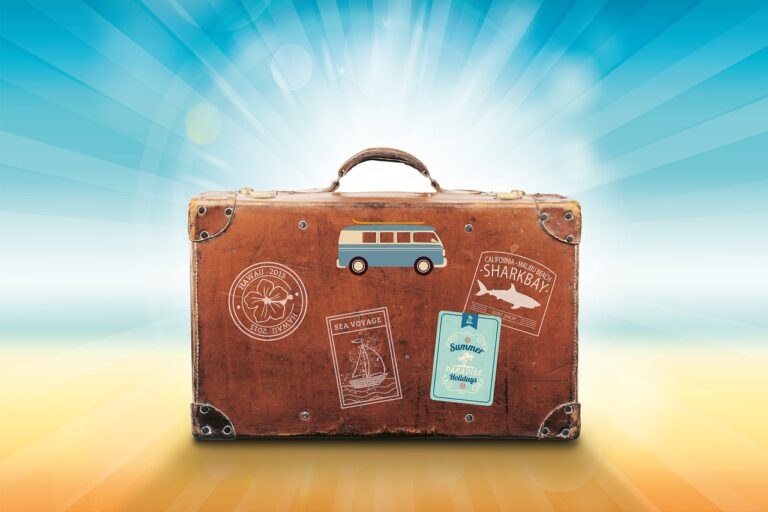Top 10 Tips for Road Trips: Ensuring a Safe and Enjoyable Journey

Road trips offer a unique way to explore new destinations, enjoy scenic routes, and create lasting memories with friends and family. However, successful road trips require careful planning and preparation. Here are ten essential tips to ensure a safe, fun, and memorable road trip:
1. Plan Your Route and Stops
One of the keys to a successful road trip is careful planning. Outline your route and identify interesting stops along the way.
- Map Your Route: Use a map or a GPS app to plan your route, including starting and ending points, major highways, and alternate routes.
- Scenic Stops: Research scenic stops, landmarks, or attractions along your route. Allocate time for sightseeing and explore points of interest.
- Rest Stops: Plan regular rest stops to stretch your legs, use restrooms, and refuel. This helps prevent fatigue and keeps everyone comfortable.
2. Prepare Your Vehicle
A well-maintained vehicle is crucial for a smooth and safe road trip.
- Scheduled Maintenance: Ensure your vehicle is in good working condition by having it serviced before your trip. Check the oil, brakes, tires, battery, and fluid levels.
- Emergency Kit: Pack an emergency kit with essentials like a spare tire, jack, jumper cables, flashlight, first aid kit, basic tools, and a reflective vest.
- Roadside Assistance: Consider a roadside assistance plan in case of unexpected breakdowns. Many insurance companies and auto clubs offer this service.
3. Pack Smartly and Efficiently
Packing efficiently ensures you have everything you need without overloading your vehicle.
- Essentials: Pack essentials such as clothing, toiletries, medications, and travel documents. Bring layers to accommodate varying weather conditions.
- Snacks and Drinks: Stock up on snacks and drinks to keep everyone satisfied between stops. Choose non-perishable and easy-to-eat options. Don’t forget a cooler for perishable items.
- Comfort Items: Include comfort items like pillows, blankets, and travel games or entertainment for passengers, especially if you’re traveling with kids.
4. Stay Hydrated and Eat Well
Proper hydration and nutrition are important for maintaining energy and focus while driving.
- Water Bottles: Bring reusable water bottles for all passengers and refill them regularly. Dehydration can lead to fatigue and decreased alertness.
- Healthy Snacks: Pack healthy snacks like fruits, nuts, granola bars, and sandwiches. Avoid heavy, greasy foods that can make you feel sluggish.
- Meal Planning: Plan for meals along the way, whether it’s stopping at local restaurants or having a picnic at a scenic spot.
5. Prioritize Safety
Safety should be a top priority on your road trip.
- Seatbelts: Ensure all passengers wear seatbelts at all times. Follow child safety seat laws and recommendations for younger passengers.
- Driver Rotation: If possible, rotate drivers to prevent fatigue. Take breaks every 2-3 hours to rest and switch drivers.
- Speed Limits: Adhere to speed limits and traffic laws. Drive defensively and be prepared for unexpected road conditions.
- Weather Conditions: Check weather forecasts along your route and be prepared for changes. Adjust your driving speed and plans accordingly.
6. Use Technology Wisely
Modern technology can enhance your road trip experience.
- GPS and Navigation: Use GPS and navigation apps like Google Maps or Waze to plan your route, get directions, and receive real-time traffic updates.
- Entertainment: Download music, podcasts, audiobooks, or movies for entertainment during the drive. Offline content ensures you have access even without an internet connection.
- Travel Apps: Utilize travel apps for finding accommodations, restaurants, gas stations, and attractions along your route.
7. Plan for Accommodations
If your road trip spans multiple days, plan your accommodations in advance.
- Booking Ahead: Book accommodations ahead of time, especially during peak travel seasons, to ensure availability and potentially better rates.
- Campgrounds: If you prefer camping, research campgrounds and check for availability. Make reservations as needed.
- Flexibility: While it’s good to have a plan, be flexible in case you encounter delays or decide to stay longer at a particular destination.
8. Stay Connected and Informed
Staying connected and informed ensures you’re prepared for any situation.
- Charge Devices: Ensure all your devices are fully charged before starting your trip. Use car chargers to keep devices powered on the go.
- Communication: Keep in touch with friends or family back home, letting them know your itinerary and checking in regularly.
- Emergency Contacts: Have a list of emergency contacts, local emergency numbers, and roadside assistance services, accessible both electronically and on paper.
9. Capture Memories
Documenting your road trip helps preserve memories and share your experiences with others.
- Photos and Videos: Take photos and videos of scenic views, attractions, and memorable moments. Use a camera or smartphone for convenience.
- Travel Journal: Keep a travel journal to jot down experiences, thoughts, and reflections from your trip. It’s a personal way to remember your adventure.
- Social Media: Share highlights of your road trip on social media to keep friends and family updated and connected with your journey.
10. Respect Local Communities and Environment
Being a responsible traveler preserves the beauty and integrity of the places you visit.
- Leave No Trace: Follow the Leave No Trace principles by disposing of trash properly, respecting wildlife, and leaving natural areas as you found them.
- Support Local Businesses: Patronize local restaurants, shops, and attractions to support the communities you visit.
- Cultural Respect: Be considerate and respectful of local customs, traditions, and residents. A positive attitude fosters goodwill and enhances your travel experience.
In conclusion, successful road trips involve careful planning, preparing your vehicle, packing efficiently, staying hydrated and eating well, prioritizing safety, using technology wisely, planning for accommodations, staying connected, capturing memories, and respecting local communities and the environment. By following these tips, you can ensure a safe, enjoyable, and memorable road trip experience. Happy travels!






